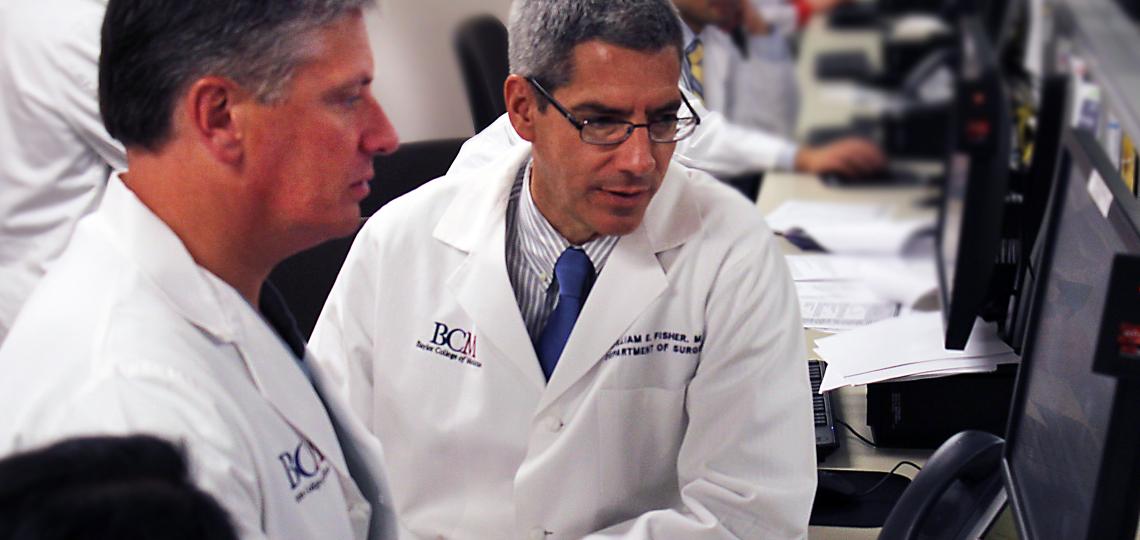Operative Experience
While serving as the liver transplant fellow, trainees’ primary surgical responsibilities include multivisceral deceased donor procedures (including whole as well as in-situ technical variant liver allograft preparation), back-table preparation for the recipient operation (including whole organ as well as ex-vivo technical variant liver allograft preparation), and recipient procedures for all of our affiliated transplant centers. While serving as the kidney transplant fellow, the trainee will focus on laparoscopic living donor nephrectomy, back-table preparation of living and deceased donor kidney allografts, kidney transplant recipient operations, and elective hepatobiliary surgery for all of our affiliated transplant centers. While this describes the trainee's primary operative focus on each rotation, our fellowship allows flexibility for cross coverage should interesting/unique cases arise.
Fellows are expected to scrub for all surgical cases on the respective service to which they are assigned. For the recipient operations, fellows will begin as first assistant to the attending transplant surgeon. As technical skill and experience advance, they will progress to the role of operative surgeon with first assistance from the attending transplant surgeon. Similarly, for elective hepatobiliary surgical cases, the fellow will progress from first assistant to the attending physician to operative surgeon with first assistance from the attending physician to operative surgeon with first assistance from house-staff and second assistance/supervision from the attending physician. For donor procedures, fellows will progress from first assistant to the attending physician to operative surgeon with first assistance from the attending physician to operative surgeon with assistance from house-staff and attending physician supervision. All operations will be directly supervised by an attending physician.
Inpatient Clinical Management
As their operative schedules allow, fellows are expected to coordinate twice daily rounds with the assistance of our residents and advanced practice providers. They are expected to know the clinical status of peri- and postoperative transplant patients, assist in the formulation of care plans including immunosuppression dosing, and communicate all changes in patient status to the appropriate attending physician.
Outpatient Clinical Management
Fellows are expected to participate in the liver and kidney transplant clinics at all of the affiliate transplant centers as allowed by their operative schedules.
Donor Selection
Fellows alternate weeks of primary donor call for deceased liver and kidney donors. They are expected to review all relevant donor history, laboratory, and imaging findings as well as all recipient characteristics to discuss the appropriateness for transplantation with the attending physician on call. They further interact with both the transplant coordinator on call as well as the appropriate medical specialist on call to assure recipient readiness for transplant.
Didactic
Academic Universe modules from the American Society of Transplant Surgeons are the fundamental basis for our transplant curriculum. Fellows are expected to complete the national transplant curriculum in a timely and longitudinal manner. Their completion is monitored by the program director. This curriculum is fortified via our planned "transplant boot camp," which will include a didactic series of fundamental transplant knowledge, including transplant pharmacology, tissue typing and HLA, pathology of normal and pathologic liver and kidney allografts, psychosocial aspects of transplant, transplant nutrition, transplant finance, and transplant regulatory statutes. The curriculum is further augmented through administrative/clinical/teaching conferences, including selection committee, pathology, and radiology conferences at our affiliated programs.
Research
Fellows are also encouraged to participate in clinical and, if possible, laboratory research. They are expected to submit at least one manuscript per year of training to a national meeting, and produce, as first author, at least one manuscript for submission to a peer-reviewed journal. Our fellows are required to participate in our division’s weekly research meeting as their operative schedules allow. Should any fellow have an interest in involvement with basic science research, we would identify a collaborator within the first two months of fellowship and identify a mechanism for protected time for scholarship.
Managed Time Policy
Per institutional policy, fellows are allocated 3 weeks of vacation time annually, which is to be scheduled with the program director at the beginning of each academic year. Fellows will alternate weekend coverage (and in the case of one fellow, alternate weekend trainee coverage with the senior house-staff). Fellows are additionally allowed time off to attend national meetings.








 Credit
Credit
